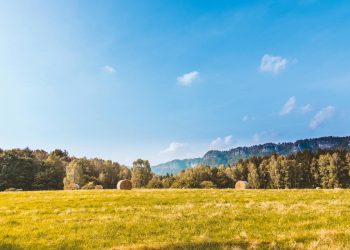When we think of learning, traditional sources like classrooms, books, and lectures typically come to mind. These structured environments provide curated knowledge, designed to guide and nurture understanding in predictable ways. Yet, life’s richest and most transformative lessons often emerge not from textbooks or formal instruction, but from surprising, unexpected places — the kind we rarely consider “educational” at all. Recognizing and embracing learning from these sources can reshape not only our minds but also our character, creativity, and resilience.
Life is a complex, unscripted experience. It constantly presents moments of teaching disguised as hardship, joy, coincidence, or failure. Think about the times you have learned the most about yourself: was it during a lecture on personal development or through the anguish of a broken relationship? Was it reading about leadership in a business book or being thrust into a situation where you had to take charge under pressure?
Unexpected places — a fleeting conversation with a stranger, a mistake at work, an impromptu travel mishap — can provide lessons that no traditional environment could have planned. These moments are what some educators call the “hidden curriculum” of life: the informal, unstructured learning that shapes our ethics, social skills, adaptability, and emotional intelligence.
Nature has long been an unexpected but profound teacher for those who pay attention. Watching the steady, determined growth of a tree in harsh conditions can teach patience and perseverance better than any motivational seminar. Observing the delicate balance of an ecosystem offers lessons about interdependence and respect that are far deeper than any textbook chapter.
Indigenous cultures have understood this for millennia, embedding their teachings within the observation of seasons, animals, and the land. Today, scientific studies even confirm what ancient wisdom already knew — spending time in nature enhances cognitive flexibility, emotional well-being, and even problem-solving skills.
Failure is another underestimated classroom. Society often paints mistakes as something to be avoided, an embarrassing mark against competence. Yet, in truth, mistakes provide clearer, sharper lessons than success ever could.
When Thomas Edison famously remarked that he hadn’t failed but found “10,000 ways that won’t work,” he illuminated a crucial truth: errors force us to confront gaps in our understanding, to reevaluate our strategies, and to cultivate resilience. Failure strips away arrogance and forces humility, an essential trait for any real learning to occur.
Even in everyday life — missing a flight, choosing the wrong career path, saying the wrong thing at the wrong time — there is an abundance of lessons waiting for those willing to reflect and adjust.
While many of us instinctively seek advice or insights from experts or trusted friends, some of the most memorable and life-altering advice can come from complete strangers. Whether it’s a random chat at a bus stop, a shared experience during travel, or a chance encounter at a coffee shop, strangers often provide a fresh perspective precisely because they are not embedded in our personal narratives.
These interactions, unburdened by assumptions or prior judgments, can offer pure, honest reflections and reveal angles we had never considered. When we open ourselves to listening rather than dismissing, we realize the world is full of wisdom quietly circulating through unexpected voices.
Another unlikely source of profound learning comes from what society sometimes labels “lowbrow” — television shows, pop music, comic books, even memes. While these forms of media are often dismissed as shallow or entertainment-only, they frequently tap into deeper social currents and human experiences.
Take, for example, the lessons of courage and identity embedded in superhero comics, or the nuanced social commentary hidden beneath layers of humor in a sitcom. Even viral internet content often captures raw emotions and unfiltered experiences that reflect the complexities of modern life.
Learning does not have to come wrapped in scholarly language to be meaningful. Sometimes, an offhand lyric in a pop song can articulate a deep truth about love, ambition, or grief in a way no academic paper ever could.
Many people view their jobs merely as means to an economic end, but workplaces are complex microcosms of human interaction — perfect unexpected arenas for learning. Beyond technical skills, jobs teach negotiation, collaboration, conflict resolution, emotional regulation, and leadership.
Handling a difficult boss teaches diplomacy and patience; working under tight deadlines develops efficiency and focus. Even negative work experiences, like being underappreciated or laid off, can build resilience and encourage innovation in ways that no career development seminar could manufacture.
Children are often seen as empty vessels to be filled with knowledge, but adults have much to learn from children as well. Young minds approach the world with a sense of wonder, relentless curiosity, and fearlessness that most adults have long lost.
Observing how children interact with the world — how they question everything, how they persist through failure without embarrassment, how they imagine endless possibilities — can inspire adults to rekindle creativity, challenge assumptions, and embrace play as a legitimate tool for innovation.
Travel, especially to unfamiliar cultures, is a powerful educator. It teaches humility — realizing that one’s own way of life is not the only or necessarily the best way. It teaches adaptability — navigating foreign languages, customs, and daily inconveniences without the usual comforts of home.
More importantly, travel challenges biases and broadens empathy. Encountering different perspectives, foods, faiths, and philosophies forces the traveler to reexamine preconceived notions and expand their worldview far beyond the borders of their upbringing.
Ultimately, the willingness to learn from unexpected places requires a shift in mindset. It demands humility — the recognition that valuable knowledge can come from sources we traditionally undervalue. It requires openness — the readiness to suspend judgment and listen, observe, and reflect without rushing to categorize or dismiss.
When we embrace unexpected learning, we become perpetual students of life, gathering insights from everywhere and everyone. We enrich our personal growth, deepen our understanding of the world, and cultivate the resilience to thrive in an ever-changing landscape.
In an age obsessed with expertise and specialization, perhaps the greatest wisdom lies in remaining an eager amateur of life itself — finding teachers in the whispers of nature, the echoes of mistakes, the words of strangers, the laughter of children, and the poetry of the mundane.











